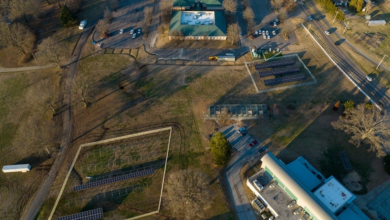Hong Kong scraps visa of Chinese scientist who genetically modified babies

Hong Kong, Feb 22 (EFE).- Hong Kong authorities said they had canceled the work visa of a Chinese scientist sentenced to prison for creating the world’s first genetically modified babies, frustrating his plans to transfer his research to the city.
Immigration officials in the former British colony suspected the expert falsified the application form, Hong Kong broadcaster RTHK reported Wednesday.
Chinese scientist He Jiankui, released in April last year after serving a three-year sentence, said Tuesday that his visa had been approved through a local talent recruitment program, and that he was looking for collaborators to further his work on gene therapy for rare diseases.
“I am contacting Hong Kong-based universities, scientific research organizations and companies,” he was quoted as saying by local media. “If there are definite and suitable opportunities, I will consider the possibility of working in the city.”
However, late Tuesday, authorities of the semi-autonomous city said they had revoked the corresponding permit to a person who “provided false information” in the application, adding that a criminal investigation had been opened.
The controversial researcher, who rose to worldwide fame in 2018 after saying he had created genetically manipulated babies to resist HIV, recently said his intention was to carry out gene editing research in the former British colony using artificial intelligence.
He, a professor at the Southern University of Science and Technology in the southeastern Chinese city of Shenzhen until his dismissal in January 2019, was sentenced in December of that year to three years in prison for his experiment.
From He’s experiment, carried out using the CRISPR/Cas9 gene editing technique, three babies were born: in 2018, two twins named Lulu and Nana, and the following year, another named Amy.
In his last public appearance, at a conference at the University of Hong Kong in November 2018, the scientist was “proud” of his work, saying his study was not aimed at eliminating genetic diseases but rather “giving girls natural ability” to resist possible future HIV infection.
The scandal prompted Chinese authorities to revise their regulations on human genetic modification, which now require national-level approval for clinical research in that field or in other “high-risk biomedical technologies.”
The Chinese government published new guidelines to reform ethical review processes in areas such as life sciences, medicine or artificial intelligence. EFE
msc/lds





